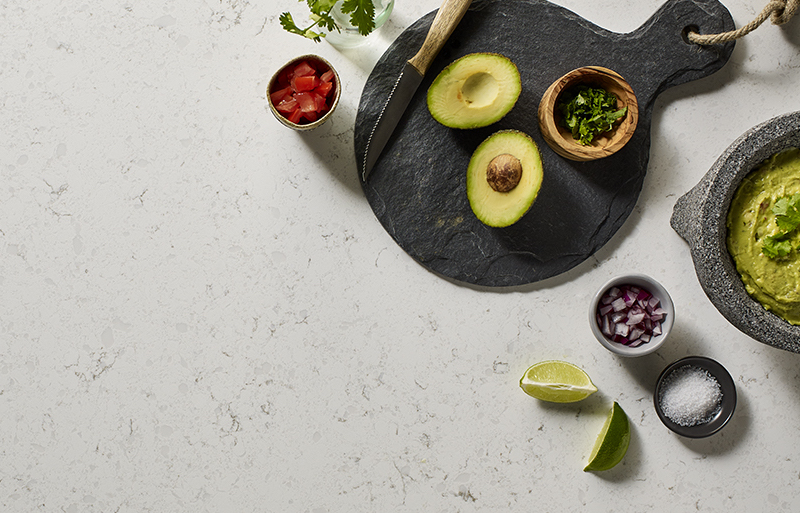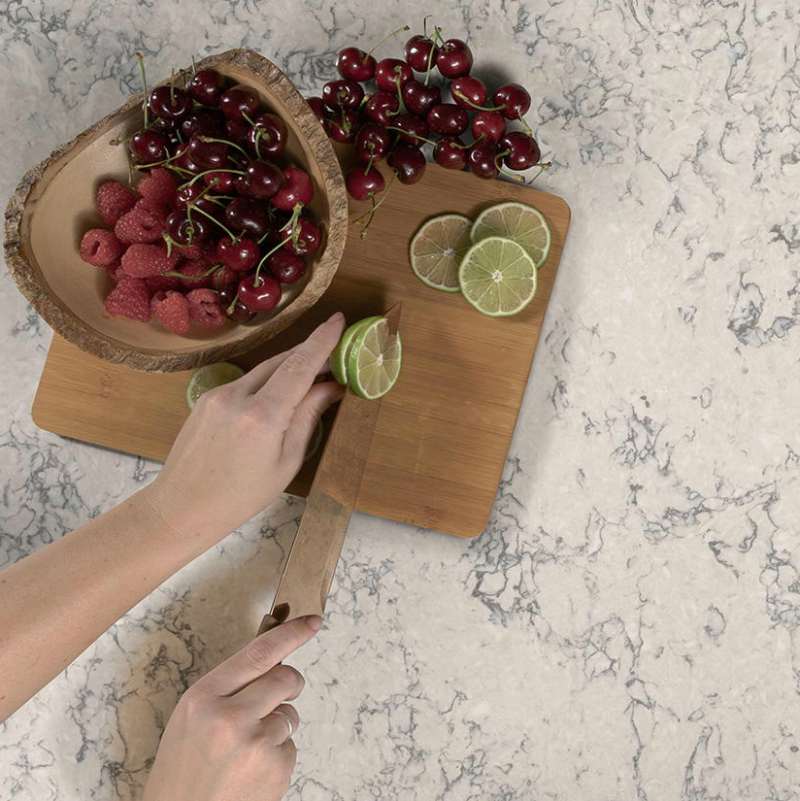Tips From The Trade: Thinking About Marble? Consider A Quartz Countertop First!
March 01, 2018
Many homeowners fall in love with the idea of a marble countertop — it’s luxurious and lovely, has a reputation as a favorite surface for bakers. It’s upscale and impressive! When guests come for a visit, a marble countertop is an item to show off with pride.
It’s true that marble countertops are luxe and gorgeous. However, they’re not a good choice for everyone! As a matter of fact, quartz countertops are worth considering! Before you commit to such a large investment with marble, take some time to learn what you’re getting into:
#1. Marble is High-Maintenance
Marble is expensive to install and to maintain. Not only is marble one of the most costly types of countertop you can choose — which is why it is considered so luxurious and upscale — it needs regular maintenance.
Marble countertops must be cared for like a fine piece of wood furniture; you need to clean and polish them regularly with a mild cleanser, preferably one made specifically for marble. Plus, marble needs sealing about once a year to make it nonporous, or else it will absorb water or any other liquids it comes in contact with.
#2. Color Can Vary
Due to a lack of uniformity in color and pattern, you might not get the look you were expecting. Depending on where you purchase the countertop, you may be able to inspect the actual slab that will be installed. However, since marble is a natural material, it’s hard to guarantee consistency in color and pattern between slabs, and matching separate pieces may be a challenge.
#3. Marble is Susceptible to Staining
Marble is susceptible to staining and damage from acidic and oily substances. A good sealer can help protect marble against stains, but it’s not foolproof. Acidic substances abound in a kitchen environment — citrus juice, tomato sauce, vinegar, and more. Same with oils. Red wine may be the worst offender of all. Many stains can be removed or at least lightened, but if you’re a frequent cook, this might be an issue for you.
#4. Marble’s Surface Can Etch and Scratch Easily
Glossy, polished marble surfaces are extremely susceptible to etching from acidic substances, including harsh cleansers, which means damaging the shiny surface and creating dull spots. Marble is much softer than other types of countertop, even other natural stones, and is therefore vulnerable to scratches from items placed on the counter, or from ordinary cooking activities.
#5. Even Water Can Stain a Marble Slab
Marble sealers help, but rarely make countertops waterproof. Simply leaving a glass of cold liquid on the countertop can result in a permanent ring caused by condensation. If you have hard water, mineral deposits may build up, particularly around the sink.
With this in mind, you should consider a quartz countertop as a more practical alternative — and you can still get the gorgeous marble look you want. Quartz countertop trends include quartz that looks like marble, resembling the real thing so well that it’s hard to tell the difference. Many quartz countertop colors are available, and since quartz is a manufactured surface, you know that what you see is what you get, because each piece is consistent in color and pattern.
A quartz countertop is nonporous and does not need sealing. It resists stains and scratches, even from acidic substances and red wine (though it’s still a good idea to clean spills quickly). Quartz is heat-resistant, so although we recommend using trivets and hot pads, it’s less likely you’ll damage the countertop if you accidentally set a hot pan on the surface.
 Featured: Blanca Arabescato Quartz
Featured: Blanca Arabescato Quartz
Visit MSI’s Web Gallery to view the many beautiful colors and patterns we offer in Q Premium Quartz, and you’ll be convinced that you can still get the luxurious look of marble without the worry and maintenance.
More on Quartz Compared to Marble
Why Choose Quartz Countertops Over Marble
Are Quartz Countertops Better Than Marble?
Which Is Better for Your Kitchen — Marble Or Quartz Countertops?
Are Quartz Countertops More Durable Than Marble?
